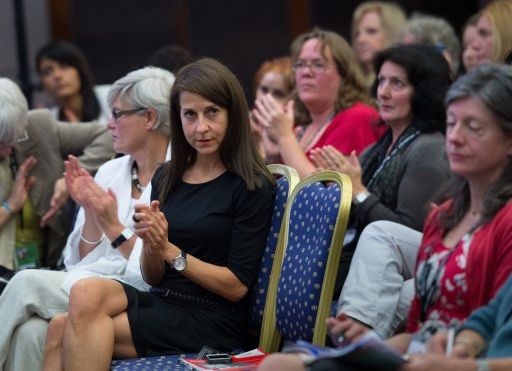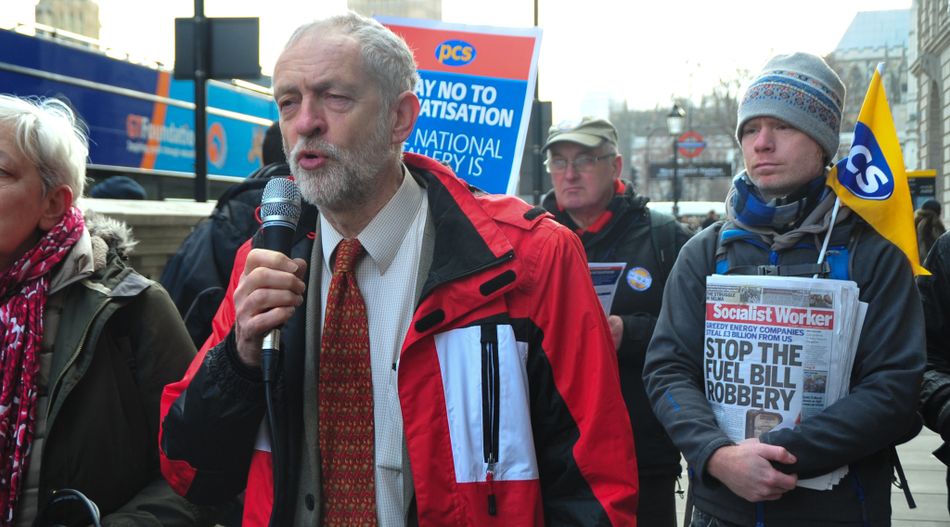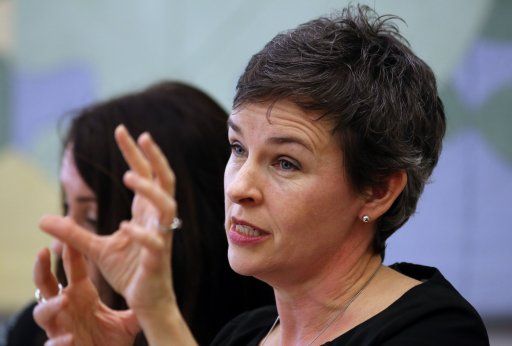The Labour leadership race today cranks up a gear, with the formal nomination period opening this morning. MPs now have until noon on June 15th to secure the 35 nominations from fellow MPs required to make the ballot.
We've run through the latest on each of the candidate below, but first, here's the current state of the race (we will update this periodically):
(Numbers via the Labour party website)
Liz Kendall just made it over the 35 mark overnight, with Gloria de Piero coming out for her, meaning this is now a three horse race. But many MPs and other party members are concerned at how narrow the contest is. Dagenham MP John Cruddas dismissed in a BBC interview the "Duracell bunnies running around shouting 'aspiration aspiration." Many hoped that Jeremy Corbyn—the MP for Islington North and a staunch left winger—would bring some more breadth to the debate, and Michael Meacher and Ronnie Campbell, previously Burnhamites, have both switched to the more radical Corbyn. But unless he puts in a heroic effort in the next week, he may not get his 35, and we may be left with just the three mainstream candidates.
After June 15th, the next major milestone is the closing of the ballot on September 10th, after which the winner will be announced in time for Labour's summer conference at a special event on September 12th.
The candidates:
Andy Burnham
© Stefan Rousseau/PA WireLaunching his bid in a slick, Prime Ministerial video, a besuited Burnham stood before rows of statesmanlike filing cabinets to proclaim that “the party I love has lost its emotional connection with millions of people.” He called on the party to appeal to “the aspirations of everyone,” not just those at the top or bottom of society. Burnham is well qualified. As Shadow Health Minister in Miliband's administration, he carried a lot of the NHS-focused election campaign on his shoulders. He will also benefit from strong social media support—a range of independent and official social media campaigns have been launched behind his bid. But his claim to be a broad, unifying candidate is slightly undermined by the fact that only 6 of his nominees (going by the New Statesman's list) represent constituencies in the south of England, the area outside Scotland in which Labour faced its greatest electoral defeat. Burnham's two defining policy positions so far have been his intention to launch a separate pro-EU campaign for Labour in the upcoming referendum, and his outspoken opposition to the use of private providers in the NHS.
Twitter:@andyburnhammp (72,000 followers)
Liz Kendall

A relative unknown when she declared her intention run, Kendall has turned her under-exposure with the public into an advantage; she has presented herself as the change candidate, telling the Sunday Politics “we don't just need a new face, we need a fundamentally new approach.” Her differences of opinion with her Shadow Cabinet boss Burnham are well-known—she once told the House magazine that in terms of keeping the NHS private or public "what matters is what works"—and were the subject of a well-timed joke from Health Secretary Jeremy Hunt last week. She rejects the characterisation that she is on the right of the party, but she has a reputation among colleagues for challenging the party consensus: she backs free schools and the 2 per cent defence spending target, and opposes cutting tuition fees. A former director of the Ambulance Service Network, Kendall has serious managerial experience and has deepened her knowledge of the health service with a shadow ministerial care brief. She was also being tipped to journalists as a potential leader by Blairite MPs as far back as February. But in practice, Kendall may be deemed too inexperienced to lead the party.
Twitter: @LeicesterLiz (32,000 followers)
Yvette Cooper

The Shadow Home Secretary launched her leadership campaign with an article in The Mirror. In line with the standard pundit's diagnosis of Miliband's failure, Cooper says that “Labour lost because we didn't convince enough people in all parts of the country that we had the answers to match up with their ambitions.” Cooper still suffers slightly from a sense that party members don't quite know what she stands for, and her appearance at the party's closed Parliamentary hustings yesterday reportedly focused less on policy change and more on the need for an all-embracing "vision." But Cooper is to set out more detail in a series of speeches, beginning with this week's which focuses on housing.
Twitter: @YvetteCoopermp (66,000 followers)
Jeremy Corbyn

Firmly on the party's left, the courteous and thoughtful Corbyn—a late entry to the race—is nonetheless liked by colleagues across the party. There is a substantial distance between him and the other candidates: he is running on a bold, anti-austerity ticket. "In the debate about the future direction of the Labour party, there has been much talk about 'aspirations,'" he wrote in the Guardian, "and also about how we were not seen to be sufficiently business-friendly in the election. [But] The reason I am standing in the Labour leadership election is because I believe we should be more aspirational about closing the huge inequality gap in Britain." He may struggle to get his 35 nominations, especially as due to his late declaration some potential allies have already come out for Burnham or Cooper, but may enjoy support from MPs keen to ensure a wider spread of debate—having rebelled against the whip 238 times, he is one of Labour's most independent thinkers.
Twitter: @jeremycorbyn (32,000 followers)
Mary Creagh

A surprise late entry to the race, Creagh took the daring step of announcing her candidacy via a Daily Mail article. Presumably, this was intended to highlight that unlike Miliband she was willing to reach out to non-traditional Labour audiences. But such a strategy is risky—before the next Labour leader wins over the electorate, they have to win over party activists and MPs, and Creagh has thus far struggled to do so. Creagh, who held the Shadow International Development brief under Miliband and was therefore not a major figure in the domestic-focused election campaign, has centred her pitch around small businesses, saying she had a "premonition" of the party's defeat when the owner of such a business sent her a critical message shortly beforehand. It's true that this section of the electorate was unfriendly to the party in the long campaign, but winning hearts and minds will require more than a few winning ideas on business rates and deregulation.
Twitter:@MaryCreaghMP (18,000 followers)












